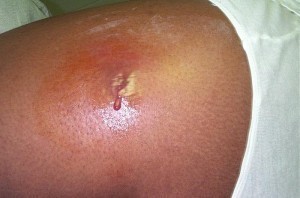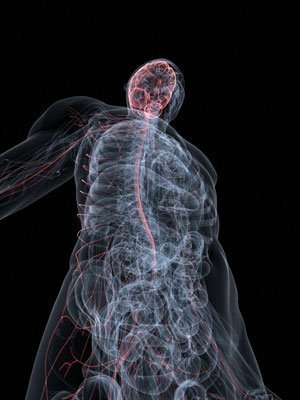Symptoms of MRSA Infection
MRSA infection is a severe medical problem caused by the bacterium called methicillin-resistant Staphylococcus aureus. This is a tricky infection as it is resistant to different kinds of beta-lactam antibiotics such as oxacillin, dicloxacillin and of course methicillin. People with weakened immune systems, invasive devices and open wounds have higher risks of acquiring this severe disease. Common causes include antibiotic resistance and staph infections. Let’s take a closer look at this serious health problem including the diagnosis, treatments and symptoms of MRSA infection.
Signs of MRSA Infection
The signs of MRSA infection are made up of major and minor symptoms. Early signs include the presence of small red bumps in the affected areas. They resemble qualities of spider bites, boils or pimples. After a while, these minor signs can turn into more severe forms, which include painful and deep abscesses. Patients suffering from these symptoms usually need surgical draining. When left untreated, this medical condition can eventually lead to life-threatening diseases that may affect different body parts including the lungs, heart valves and bones.
The risk factors of this disease include living in places with unsanitary conditions, weakened immune systems and participation in contact sports. Furthermore, this condition is also associated with recent use of antibiotics, living in long-term care facilities and recent hospitalization.
MRSA Infection Diagnosis
Diagnosis is highly important in the management of MRSA infections. Usually, doctors check the nasal secretions as well as tissue samples from the patients. These samples will be observed and analyzed, particularly for determining the presence of drug-resistant bacteria. They will be cultured for at least 48 hours in order to confirm the presence of staph DNA. Most of the time, the medical histories of patients are always considered to provide a comprehensive and highly accurate diagnosis of this serious medical condition.
The presence of wound infection must be monitored. The tenderness, warmth and redness of wounds are clear indications of infection. At the same time, the wound may come with a foul smell and a yellowish-white fluid. Furthermore, patients are expected to have fever when suffering from this severe type of infection.
MRSA Infection Treatment
Although this medical problem does not respond to methicillin and other types of antibiotics, patients need to consult their doctors for the best possible treatment options. For the treatment of resistant germs, physicians can prescribe the use of a special antibiotic called vancomycin. In other situations, doctors may feel the need for superficial abscess draining rather than the intake of antibiotics and other available medications.
For more information on Symptoms Of MRSA Disease read:







